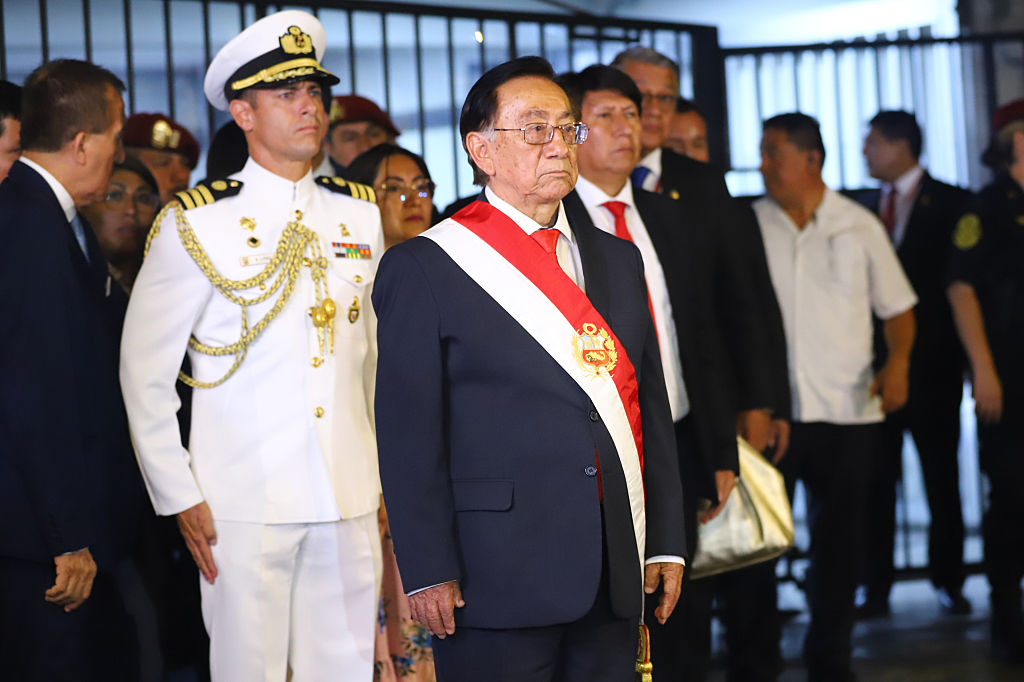In Spite of Victory, New Chávez Term Spells Uncertainty in Venezuela
In Spite of Victory, New Chávez Term Spells Uncertainty in Venezuela
President Hugo Chávez won reelection but his health, a strengthened opposition, and security issues will be challenges in his next term.
With an advantage of over a million votes, President Hugo Chávez won another six-year term in office, defeating an invigorated opposition that sought to end his nearly 14-year rule. With over 97 percent of the votes counted, Chávez won 55 percent of the electorate with 8.06 million votes while opposition candidate Henrique Capriles received 44 percent with 6.46 million votes. Capriles and the opposition immediately recognized the results, stifling talk of a contested vote and post-election unrest. However, another Chávez term raises more long-term questions, including his ongoing illness, how he will move forward with an increasingly polarized country, and how critical issues such as spiraling crime rates and a struggling oil sector will be managed.
Given the significant number of voters who supported the opposition, Chávez faces a changing constituency. In his concession speech, Capriles recognized the election results, assuaging fears that the opposition wouldn’t accept a Chávez victory. But he noted that there is still opportunity for change. “I’m convinced that this country can be better and will be better…radicalism in this country has caused it great damage,” he said. Capriles also urged Chávez to respect those who voted for the opposition and are not supporters of his government’s projects. Instead of his usual harsh words for the opposition, Chávez recognized Capriles’ concession, and said that now the country required “dialogue, debate, and working together.” In addition to hinting at a less polarizing administration, Chávez called Capriles on Monday for an “amicable” conversation.
Observers also pointed out that Chávez must contend with stronger opposition support. “On Sunday night, [Chávez] had to face the fact that the people he taunted as squalid good-for-nothings, little Yankees and fascists, turned out to be nearly half the electorate,” New York Times coverage of the election explained. Earlier this week, journalist Jon Lee Anderson wrote: “Whether or not Chavez wins, this will probably represent the final eclipse of the long, heady reality show that his leadership has become. “ He added that in spite of a Chávez victory, it seems likely that “the next political era will belong to Capriles, or, if not him, someone else like him, who can carry on with the task of making Venezuela a fairer and safer society, and do so effectively, without all the heady rhetoric.”
Despite the electoral victory, Chávez’s illness raises questions about his next term. The president received several treatments for cancer over the past year, but the administration refused to release details of his illness. The Venezuelan constitution states that should a president pass away within the first four years of his term, new elections must be held in 30 days. Miami Herald columnist Andres Oppenheimer pointed out in an October 3 op-ed that a Chávez victory would not preclude a future Capriles presidency. “There is a plausible scenario that…a good showing in Sunday’s election will allow him to keep the opposition unified, and to become a viable alternative to a president who may have terminal cancer, and who has no successor who could beat Capriles,” he wrote.
Nagging challenges with violence and oil—the country’s main export—also present questions about the next administration. With one of the highest homicide rates in the world and rising levels of kidnappings, Chávez must contend with crime. InSight Crime argues that another Chávez term could mean continued growth of organized crime groups in Venezuela. Roberto Briceño, head of the Venezuelan Violence Observatory, told AFP that "What is happening in Venezuela is that we haven't had the political will to apply the law," citing impunity as a major problem. Venezuela’s oil industry struggles to reach output targets, and plans to expand production could be complicated if multinationals chose not to participate following Chávez’s reelection. State oil company PDVSA was not paid directly for nearly half the oil it produced last year; Chávez will maintain trade agreements to pay for petroleum with goods and services, reports Reuters.
In other election news:
- El Universal has an interactive map showing how each Venezuelan state voted in Sunday’s election, as well as in past elections dating back to 1958.
- During Sunday’s municipal elections, Brazilian voters elected a record number of female mayors who now represent over 11 percent of the country’s municipalities.
- Chile's October 28 municipal elections mark a historic change in which for the first time, voting will be voluntary with automatic registration, which will allow all Chileans 18 and older to vote. The change could potentially double the number of voters, allowing up to 5.2 million to vote–half of which are under age 29.







